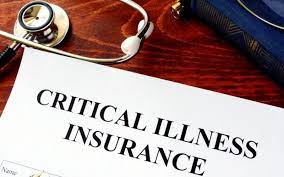
Professionals in the insurance sector have stressed the need for Nigerians to adopt critical illness insurance as a priority to safeguard their health in the country.
The industry experts gathered at a webinar discussion with the theme: Safeguarding your health: the importance of critical illness insurance hosted by the Coronation Life Assurance Limited and moderated by the CNBC Africa Anchor, Wole Famurewa, explained the role of prevention in managing health costs and outcomes, adding that the key to prevention is education.
They also argued that “If ordinary Nigerians understood just a few things about health insurance, the country could substantially improve general health, as millions of Nigerians would free themselves from the shackles of dependency and debt.”
Speaking at the meeting, the keynote speaker, Assistant Director of Underwriting and Marketing at Africa Re, Abdul-Rasheed Akolade – described health insurance as a key enabler of wealth.
He explained that “critical illness insurance is a powerful tool for preserving and building wealth covering named dread diseases, such as heart attack, stroke, cancer, coronary bypass, major organ transplants, or kidney failure, Critical illness cover was effective in managing large, ongoing, and expensive treatments that most people would struggle to afford.
“Similarly, Permanent Health Insurance, PHI, was a fantastic tool that ensures disability does not wipe out one’s income or render people dependent on their employers, relatives, or friends. PHI made provision for the payment of an agreed income in the event of permanent disability through accident, ill-health, or sickness.
Also speaking at the webinar, the panel of experts which include, Dr. Yomi Sule, Founder/M.D Tillit MSME Microservices, Adekanla Desalu, Nollywood actor and producer, Professional banker and Advisor, and Kehinde Grillo, Head of Partnership discussed the critical role of health insurance in transforming Nigeria’s economy by building more resilient lives.
One of the panelists, Dr Yomi Sule, stated that in many countries, some official tax, like Value-Added Tax (VAT) on transactions, was used to fund a basic public medical aid scheme. In Ghana, for example, a 2.5% VAT funded a basic national health insurance product covering 70 per cent of the population.
This was an ideal situation with basic healthcare covered by a national scheme. Most Ghanaians were free to augment their public health insurance with smaller private covers focused on their particular health or lifestyle risk profiles. The panel of experts pointed out that even though Nigeria did not have any national health insurance programme, the private sector provided extremely competitive offerings. For as little as N10,000 a year, for example, Nigerians could secure up to N10 million in health insurance.
“Since premiums can generally be paid monthly, bi-monthly, annually, or even in a once-off lump sum, flexibility combined with relatively low premiums makes insurance available to most.
They added “While most insurance products don’t cover pre-existing conditions and most health policies cannot be purchased beyond the age of 65, the insurance industry in Nigeria is generally willing to write individual policies for individual circumstances. That said, it is advisable to purchase health insurance while young or still an active professional. Not only does this help preserve and grow wealth throughout one’s life and ensure better lifestyle choices and health outcomes, but it also enlarges the pool of contributions, enabling the industry to extend cover to more Nigerians.
“It is also important that Nigerians understand that they can purchase multiple health covers, provided they declare overlapping covers at purchase. Should a single individual have a policy ensuring a particular condition up to N10 million, and another separate policy ensuring the same condition up to N20 million, for example, that individual would be able to call on up to N30 million worth of cover in the event of contracting the named condition”.
In her closing remarks, the Head of Claims at Coronation Life Assurance, Mrs Oluwatosin Ajiniran stressed the value of wealth as an asset. “Every effort should be made to manage and preserve health as it is the key to wealth. Nigeria’s insurance sector is leading the charge to deepen financial inclusion in the country, developing products and services designed to build and preserve wealth by equipping Nigerians to manage their health affordably.






